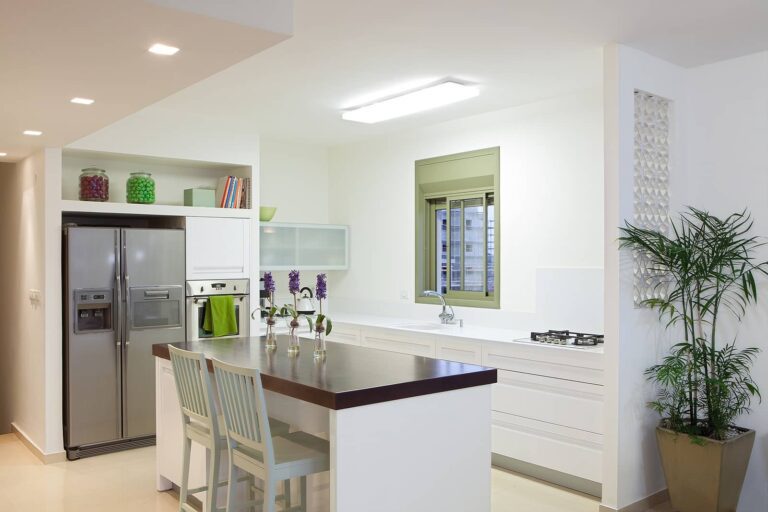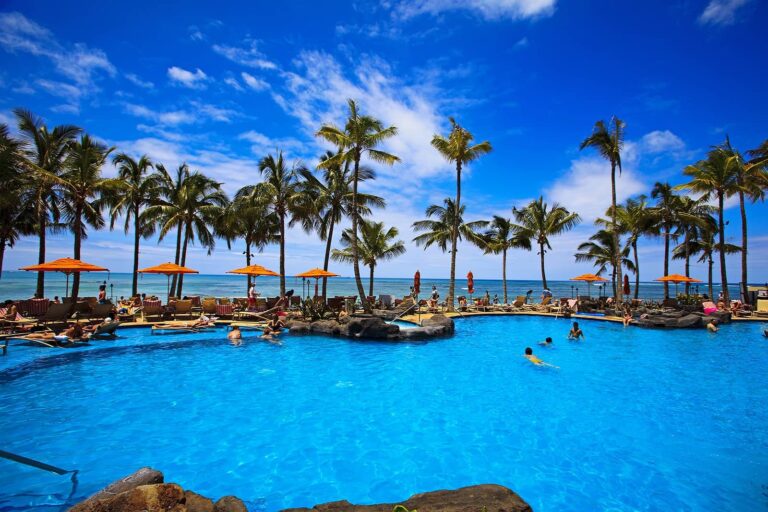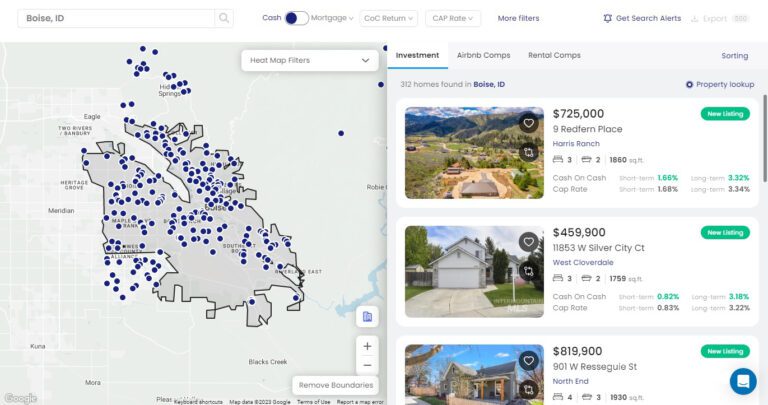As vacation rentals and home-sharing become increasingly popular among tourists and business travelers, real estate investors are looking for efficient ways to take advantage of this opportunity. But since buying a property to rent is more expensive than ever, a growing number have started an Airbnb arbitrage. In this guide, we’ll figure out how you can earn Airbnb income from this strategy.
Table of Contents
- What Is Airbnb Rental Arbitrage?
- What Are the Pros of Airbnb Rental Arbitrage Business?
- What Are the Cons of This Short Term Rental Business?
- How to Calculate Return on Investment for Airbnb Arbitrage
- How to Make Money with Airbnb Rental Arbitrage in 5 Steps
- 50 Best Cities for Airbnb Rental Arbitrage
Watch our video below to find out how to get started:
What Is Airbnb Rental Arbitrage?
Airbnb rental arbitrage refers to the practice of leasing a long term rental property from a landlord and subletting it to third-party guests on short rental platforms like Airbnb, Vrbo, Booking.com, etc. Essentially, you’re leveraging the properties of other investors and the attractiveness of the Airbnb business to generate income with low initial investment.
Airbnb rental arbitrage is a lucrative investment strategy that allows many to start investing in real estate and make money from short term rentals without owning a property.
The average home value in the US market stands at $347,716, according to Zillow data, marking decrease of 44.4% year-on-year. Nevertheless, ownership remains unaffordable for a lot of investors, especially beginners with limited finances.
Meanwhile, the 15-year and 30-year fixed-rate mortgage rates amount to 6.16% and 6.88%, respectively, based on Freddie Mac data. While these interests are comparable to the levels a year ago, they are considerably higher than the rates we witnessed two or three years ago. This further contributes to the inability of newcomers to join the property investment world.
Rental arbitrage allows these aspiring Airbnb hosts to start generating profit from a rental business.
How Does Airbnb Arbitrage Work?

How arbitrage works
To grasp the concept, let’s go through an example.
Fist, you should search for and rent a property. Let’s say this apartment costs $1,000 a month in Honolulu, HI.
Next, you sublet the unit on Airbnb for a daily rate of $140. This would allow you to pay off your rent in 8 days.
It seems tempting already, right?
Now, suppose you could have guests for 20 days per month; you will earn $2,800. After deducting your rent and let’s say another $300 in business expenses, you still have $1,500 in profit.
Is Airbnb Rental Arbitrage Legal?
Before starting arbitraging short term rentals, it’s important to go over the legal side of things.
Is your Airbnb arbitrage strategy legal?
Well, it depends on where you plan to rent and sublet your Airbnb property.
Many locations have strict short term rental regulations, so you have to ensure you can do this in your area before moving on.
Here is a list of US cities where an Airbnb arbitrage project is either prohibited or restricted, according to Passive Airbnb:
- Charleston, SC
- Jersey City, NJ
- New York City, NY
- Miami Beach, FL
- Los Angeles, CA
Additionally, here are some US cities that impose strict local regulations on this vacation rental business model:
- San Francisco, CA
- Santa Monica, CA
- Jacksonville, FL
- Fort Worth, TX
- Atlanta, GA
After you’ve done your real estate research, you must check if you have to apply for a special license or permit to operate. On top of that, you’ll still have to talk to your landlord.
What Are the Pros of Airbnb Rental Arbitrage Business?

Pros
Choosing rental arbitration as your next project is a major step in your investing career. So, it’s crucial to know what to expect, starting with the upsides:
There Is Little Risk in Rental Arbitrage
There is little risk for the investor who decides to sublet Airbnb. For instance, any property damage is not your responsibility to fix. This is largely because you’re leasing the property instead of purchasing it, thereby reducing your financial exposure. The primary risks you’ll be taking involve the rent as well as the operational costs.
Thus, you can easily manage multiple properties all at once.
You Don’t Have to Deal With A Lot Of Paperwork
Because you’re renting properties you don’t possess, you don’t have to deal with the enormous paperwork originally associated with property ownership, such as HOA fees, maintenance, utilities, mortgage payments, and so on. When you leverage an Airbnb you don’t own, the setup is faster and easier. You also won’t have to undertake expensive legal consultations.
Airbnb Rental Arbitrage Doesn’t Require a Huge Starting Capital
The best part about getting into an Airbnb arbitrage business is that it does not require much upfront capital. The only initial expenses are to secure al long term lease, pay the security deposit, and furnish the unit. Because of the lower financial barrier to entry, this is an accessible option for beginner investors who want to start a vacation rental home business without a loan.
You Don’t Have to Purchase the Entire Property
You’re not expected to purchase a property to rent it out on Airbnb. You just have to pay for the first month of rent and have some additional cash. With this strategy, you are free from the risks associated with real estate ownership. You can diversify your investment portfolio more quickly as you profit from your Airbnb rental arbitrage.
What Are the Cons of This Short Term Rental Business?

Cons
Engaging in Airbnb arbitration is not all fun, and some potential problems include:
You Have to Pay Rent Regardless
Whether your Airbnb property is booked or not, the original landlord will expect the rent. This financial commitment could mean not only earning unstable income but actually being in the red during off-peak seasons when you cannot maintain high occupancy rates. That’s why we recommend researching the Airbnb demand in your area and having extra money prepared.
You Still Answer to Your Landlord
Aside from paying rent, you need to follow your landlord’s terms and conditions. First, you cannot start a rental arbitrage without your landlord’s permission. Any changes to your rental agreement, such as restricting Airbnb sublets or terminating your lease, can directly impact your vacation rental endeavor. Thus, it’s important to maintain a good relationship with your landlord for your arbitrage venture.
You Are Liable for Legal and Regulatory Challenges
Though you don’t own the property, you need to understand the legal side of Airbnb rental arbitrage. The legal landscape in the short term rental industry is neither simple nor static, and much less for arbitrage. You’ll have to familiarize yourself with the local laws, including permissions and limitations. Failing to comply with local short term rental regulations can lead to fines, legal action, and even suspension of your Airbnb rental.
How to Calculate Return on Investment for Airbnb Arbitrage
In order to find out if the place you’re renting would be profitable as for the rental arbitrage business model, you’ll need to calculate its ROI.
Here’s how to do it in five steps:
Step 1: Calculate your total annual income. Start by adding up the total income you expect to earn in one year. This usually involves the daily rate multiplied by the number of days that you expect to be booked. You also need to factor in the cleaning fees and other charges you’re passing on to the guests. If you don’t know how much your comps earn, you can use an Airbnb calculator to help you.
Step 2: Subtract your total annual expenses. These include rent, utilities, cleaning services, property management fees, and any other operational costs. Instead of just getting the average monthly expense and then multiplying it by 12, it’s wise to account for the occasional vacancies. You can expect to pay less in utilities and cleaning services in the off-peak season when your property won’t be fully booked.
Step 3: Calculate your net annual profit. Subtract your total annual expenses from your total annual income to determine your net annual profit. This represents your potential earnings before taxes.
Step 4: Get the ROI. To find the ROI percentage, use the formula:
ROI = (Net Annual Profit / Total Initial Investment) x 100
Your total initial investment includes your starting costs such as the furnishings, security deposit, renovations, and other upfront expenses required to get your property ready for guests.
Step 5: Evaluate your investment. An ROI of at least 8% indicates a healthy investment. But you might also want to see how it compares with other short term rentals in your area to determine if your projection is as good as or better than their performance.
How to Make Money with Airbnb Rental Arbitrage in 5 Steps
Next, here are the steps to generate income and profit with the Airbnb arbitration strategy.
1. Convince Your Landlord to Agree to a Rental Arbitrage

Tips to convince your landlord to allow short term rental arbitrage
You must first get your landlord’s permission to sublet your unit on Airbnb. Reaching an agreement might be challenging as the landlord might not be as trusting as you hope.
If you want to convince your landlord to let you start your Airbnb arbitrage business, you need to address their biggest concerns, which are:
- Paying rent on time. Naturally, the landlord’s primary goal is to generate profit. This means you should pay rent on time.
- Keeping the unit in pristine condition. Maintaining the condition of the Airbnb property and following all house rules should be on your priority list. It is best to treat the property management as if the house like it’s your own. Keep it spotless and Instagram-worthy if you want no trouble with the landlord.
- Being hands-on with the business. Your landlord might be under the impression that subletting the Airbnb property is easy and equivalent to passive income. You need to convince your landlord of how much work you will put into the property management of at least one Airbnb property..
Once you reach an arbitrage agreement, you must amend your long term lease to include an Airbnb arbitrage contract.
The best rental arbitrage lease agreement template includes:
- Who takes the fall for fines and penalties
- Who pays for a liability insurance
- How much of your profit will you share with your landlord
- Whether you need to give advance notice to your landlord about guests and how to communicate it
- Whether an additional security deposit is necessary
2. Get Your Finances in Order
Another important factor to consider before engaging in Airbnb rental arbitrage is to secure your finances.
With Airbnb arbitrage properties, even if you don’t have to buy a house, you still need to factor in the following expenses:
- Permit or license application fees
- Security deposit
- Insurance
- Legal fees
- Repairs
- Furnishings and decoration
- Airbnb amenities
- Wi-Fi
- Entertainment subscriptions (e.g., Netflix, Amazon Prime, Disney+)
- Professional cleaning service
- Utilities
- Toiletries and kitchenware
- Marketing expenses
In addition, it’s vital to set aside emergency funds in case you get fewer bookings and reservations than expected.
Mashvisor’s Rental Calculator: Assisting Airbnb Hosts
To help you get your finances in order and do the math for you, Mashvisor offers its Rental Calculator. This tool is specifically designed to assist investors in evaluating anticipated profits.
Our calculator will assess the relevant Airbnb data and provide a rental arbitrage host with analytics that will make the decision-making process faster and more profitable. Some useful features include thorough market research, neighborhood analysis, calculating cash on cash return, revenue, cash flow, and others.
Airbnb Rental Calculator
Bedrooms
Bathrooms
Bedrooms
Bathrooms
3. Prepare Your Airbnb Property for Guests
While you’re on the hunt for rent-ready multiple vacation rentals, having simply a clean apartment is not enough, and passive income is not so easy. You should spice up the interior design to be even more attractive for guests.
It would also be good to add Airbnb amenities like a washer and dryer, TV, crib, dishwasher, coffee maker, and free parking. The majority of guests consider these must-haves.
4. List Your Property
Once you’re done with your finances and decorating, next comes creating your Airbnb listing and marketing it.
You’ll need to research the best platforms like Airbnb that fit your requirements. If you’re going to try a multi-channel distribution strategy, you will need an property management system tool – like the Mashvisor channel manager – to boost your Airbnb SEO ranking and prevent double bookings.
5. Keep Optimizing Your Listing
If you want your Airbnb to reach a wider audience, you must ensure it pops up in search results frequently. This means that you’ll need to take some time to optimize your Airbnb listing.
Make sure you take high-quality photos and show off the Airbnb amenities that guests are looking for in your Airbnb market. Improve the listing title and the listing description to highlight the best features of your arbitrage property to boost your performance in the Airbnb SEO algorithm. Maintain timely guest communication.
Apply an Airbnb dynamic pricing strategy to further enhance your ranking and to attract more bookings. Having competitive nightly rates is a must. The Mashvisor Airbnb pricing tool can help you automate your vacation rental arbitrage pricing strategy to maximize revenue and ROI without sacrificing occupancy.
50 Best Cities for Airbnb Rental Arbitrage

The 50 best US cities for Airbnb rental arbitrage
To expand your investment portfolio with Airbnb rental arbitrage, you can start with the 50 best cities based on potential profit, according to Mashvisor’s latest data report from March 2024.
These 50 best short term rental arbitrage opportunities offer the highest short term rental premium. The STR premium is calculated by dividing the difference between the average vacation rental income and long term rental rate and dividing it by the month’s rent in a market. In this way, we’ve ranked the places where you can obtain the highest ROI on Airbnb rental arbitrage in 2024.
In addition, we’ve calculated how many nights of renting it will take to recover the long term rent. Any additional or direct bookings beyond these nights are pure profit for arbitrage investors, regardless of whether they go for vacation rental or corporate housing arbitrage.
When ranking the top locations for the arbitrage property business model, we’ve applied the following criteria:
- At least 100 active listings on the short-term rental market
- A minimum of 100 active listings in the long term rental market
- An average Airbnb occupancy rate of 50% and above
That said, here are the 50 best cities for applying the Airbnb rental arbitrage model in 2024:
| City & State | Monthly Long Term Rent | Monthly Short Term Rental Income | STR Premium | Nights to Cover Monthly Rent | Short Term Average Daily Rate | Short Term Occupancy Rate |
| Kapolei, HI | $3,984 | $11,903 | 199% | 7.0 | $573 | 63% |
| Temecula, CA | $3,716 | $10,068 | 171% | 7.9 | $470 | 69% |
| Kailua, HI | $4,466 | $11,194 | 151% | 13.2 | $338 | 70% |
| Fort Walton Beach, FL | $1,912 | $4,287 | 124% | 7.9 | $243 | 53% |
| Redondo Beach, CA | $5,156 | $10,750 | 108% | 17.5 | $294 | 81% |
| Buena Park, CA | $3,932 | $8,172 | 108% | 13.2 | $298 | 81% |
| Huntington Beach, CA | $4,529 | $9,348 | 106% | 11.9 | $380 | 71% |
| Frankfort, KY | $1,573 | $3,125 | 99% | 10.0 | $157 | 53% |
| Thousand Oaks, CA | $4,415 | $8,717 | 97% | 16.4 | $269 | 82% |
| Oxnard, CA | $3,896 | $7,687 | 97% | 10.1 | $387 | 68% |
| Sherman Oaks, CA | $5,572 | $10,966 | 97% | 12.3 | $453 | 70% |
| Woodland Hills, CA | $4,483 | $8,695 | 94% | 14.4 | $312 | 74% |
| Ventura, CA | $4,008 | $7,769 | 94% | 15.4 | $260 | 73% |
| Twentynine Palms, CA | $1,756 | $3,401 | 94% | 9.8 | $179 | 64% |
| White Settlement, TX | $1,893 | $3,637 | 92% | 11.1 | $171 | 62% |
| North Las Vegas, NV | $2,145 | $4,099 | 91% | 7.7 | $279 | 59% |
| Honolulu, HI | $3,152 | $5,986 | 90% | 16.8 | $188 | 75% |
| Virginia Beach, VA | $2,554 | $4,810 | 88% | 9.4 | $273 | 54% |
| Whittier, CA | $3,731 | $6,951 | 86% | 20.6 | $181 | 81% |
| Manhattan Beach, CA | $7,738 | $14,259 | 84% | 18.0 | $430 | 75% |
| Oceanside, CA | $3,726 | $6,784 | 82% | 12.8 | $292 | 65% |
| Gainesville, GA | $2,631 | $4,759 | 81% | 10.9 | $242 | 57% |
| Henderson, NV | $2,742 | $4,921 | 79% | 9.0 | $304 | 64% |
| San Bernardino, CA | $2,449 | $4,393 | 79% | 12.4 | $197 | 70% |
| St. Augustine, FL | $2,612 | $4,676 | 79% | 12.5 | $209 | 61% |
| Charlottesville, VA | $2,850 | $5,078 | 78% | 11.8 | $241 | 57% |
| Aliso Viejo, CA | $4,276 | $7,611 | 78% | 13.2 | $325 | 67% |
| Fullerton, CA | $4,196 | $7,464 | 78% | 16.2 | $259 | 75% |
| San Francisco, CA | $4,556 | $8,087 | 77% | 16.0 | $285 | 75% |
| Fountain Valley, CA | $4,604 | $8,131 | 77% | 17.4 | $264 | 80% |
| Annapolis, MD | $3,078 | $5,422 | 76% | 8.6 | $359 | 51% |
| Savannah, GA | $2,618 | $4,607 | 76% | 11.0 | $237 | 60% |
| North Hollywood, CA | $3,599 | $6,331 | 76% | 14.2 | $253 | 75% |
| Milford, CT | $2,993 | $5,189 | 73% | 10.2 | $294 | 55% |
| Riverside, CA | $3,159 | $5,469 | 73% | 16.7 | $189 | 76% |
| Navarre, FL | $2,368 | $4,098 | 73% | 9.9 | $240 | 54% |
| Santa Barbara, CA | $6,475 | $11,186 | 73% | 17.2 | $376 | 72% |
| Fairbanks, AK | $2,170 | $3,728 | 72% | 13.8 | $157 | 60% |
| Ontario, CA | $2,940 | $5,049 | 72% | 15.6 | $188 | 75% |
| San Gabriel, CA | $3,823 | $6,478 | 69% | 21.7 | $176 | 81% |
| Santa Ana, CA | $3,627 | $6,121 | 69% | 17.6 | $206 | 77% |
| Fort Collins, CO | $2,543 | $4,279 | 68% | 14.1 | $180 | 67% |
| Nashville, TN | $2,472 | $4,157 | 68% | 8.8 | $281 | 56% |
| San Marcos, TX | $2,192 | $3,677 | 68% | 12.2 | $180 | 58% |
| Georgetown, TX | $2,369 | $3,963 | 67% | 12.0 | $197 | 57% |
| Burbank, CA | $4,600 | $7,685 | 67% | 23.0 | $200 | 79% |
| Seguin, TX | $1,850 | $3,090 | 67% | 7.8 | $237 | 52% |
| Mount Pleasant, SC | $3,664 | $6,099 | 66% | 13.8 | $266 | 64% |
| Chandler, AZ | $2,602 | $4,326 | 66% | 13.0 | $200 | 62% |
| Brea, CA | $4,758 | $7,906 | 66% | 18.1 | $263 | 80% |
These 50 best places to start your Airbnb arbitrage strategy are generally characterized by high Airbnb revenue and low long term rental rates. They have strong average Airbnb daily rates and above-average Airbnb occupancy rates as the most important features of the top markets for the rental arbitrage property business.
Nevertheless, you should keep in mind that our calculations are based on city averages, while your individual Airbnb arbitrage premium will depend on the exact property you rent and sublease.
Finding the ideal Airbnb property that meets your needs and requirements is an effortless process with the help of specially designed investment tools. One of them happens to be Mashvisor’s Property Finder. If you’ve got an idea where you’d like to kick off your Airbnb arbitrage strategy, make the most of this investment tool and access up-to-date and accurate information within minutes.

Mashvisor’s Property Finder can help you find where to launch your Airbnb arbitrage business.
Summing Up
An Airbnb arbitrage business is an excellent way to kick off your real estate career without buying a property. The process is quite simple as it avoids the troubles of purchasing and owning an investment property long term. Nevertheless, there is some active work related to finding the right property, convincing landlords, preparing the rental, and marketing it.
To ensure your success with Airbnb rental arbitrage, Mashvisor is here to assist you throughout your journey.
To learn how Mashvisor can help you find the next profitable Airbnb arbitrage opportunity, sign up for a 7-day free trial now.